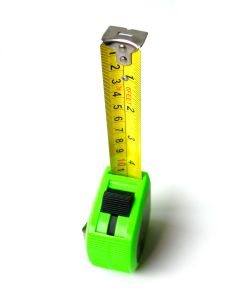Australia has all the characteristics of a country that should be leading the cleantech world: excellent research capability; mature financial markets; exceptional renewable energy resources; erratic water supplies and very high emissions per capita.
There has certainly been progress over 2012 with the start of the Carbon Pricing mechanism and its associated grant programs. These have strengthened the foundations that were started with the 20% Renewable Energy Target, water trading activities, landfill levies and the erratic feed-in tariff schemes.
With all this effort however, cleantech in Australia has only yet reached its teenage years.
As with any child, it is easy not to notice the growth as it happens and looking back it can be amazing to see how things have changed. However, there are some very distinctive teenage characteristics being displayed: growth is inconsistent and comes in bursts leaving the industry uncoordinated; moods are changeable and, overcome by the hormones of inconsistent Government subsidies, tantrums can be frequent and often inexplicable; governance can be unsophisticated and resemble a smelly bedroom ‘floordrobe’.
The industry could grow into a wonderful young man or could go off the rails and become angry and disenchanted. With parental control waning, this outcome will be largely determined by the influence of friends and mentors. Australia’s choice of peer group is therefore a critical factor in its future success.
There are a number of choices of friends that we could encourage to help our little industry to grow up. Some of these are:
– The US likes to flash its money and talk about its high marks in school. However, any friendship has to be entirely on its own terms and it really prefers to stay at home, not realising there is much beyond its own garden fence.
– Europe is sophisticated and eloquent and can charm those it first meets. However, it is a dysfunctional and once rich family that spends much of its efforts on internal arguments. It likes having Australian as a friend but thinks it is a bit uncouth.
– Korea is friendly and hard working. They are keen to be friends and would form a valuable ally. However, they are still quite small and inexperienced in the global cleantech market and also need a strong mentor to reach their potential.
– Finally, China is a neighbour who is globally the most committed to achieving in this area. Whilst there are many cultural barriers to forming close friendship, once achieved it will be firm and long lasting. China has a rich and powerful family but is also looking for the smart friends like Australia to help achieve all of its stated goals.
Compared to the US, it is far happier to work with international partners and projects. So maybe this presents the best opportunity for Australia in terms of its cleantech industry development.
Cleantech in China
The growth of the Chinese cleantech sector has outstripped its wider economy over the last five years. This has been driven by the Government need for environmental remediation of dying rivers, city air quality and toxic contamination and the huge economic opportunity in building these global industries of the future.
China has included a number of ambitious 2015 targets in its current Five Year Plan: carbon intensity reduced by 17%; water intensity reduced by 30%; and non-fossil fuels proportion of primary energy mix by 3.1%. The Plan also backed Seven Strategic Emerging Industries including: energy saving and environment protection; new energy; new materials; and clean-energy vehicles.
The performance of the listed Chinese cleantech companies is tracked by the China CleanTech Index. The performance of the market overall has not been good over the last two years due to the collapse of the solar and wind stocks. However, other sub-sectors have performed well, with the Waste and Environmental sub-sectors leading the way.
Increasingly and possibly driven by the volatile local stocks, Chinese and other Asian investors are also looking to invest in cleantech companies around the world. For example, we recently hosted two VCs, Tsing Capital from Shanghai and M Venture Investments from Seoul, who visited Australia looking for investment opportunities.
China is Australia’s largest trading partner and is also its largest source of immigrants. This presents a phenomenal opportunity for the Australian market. In Chinese culture, ‘uncle’ is used as a term of respect to someone older and of more influence. Australian is gaining increasing access to this ‘wise uncle’ and is starting to use it to help both countries grow their development and deployment of cleantech.
The companies that are having the most appeal for Chinese partners are the ones that solve China’s current challenges. Technologies connected with reducing the emissions intensity of industry or with water, waste, recycling, waste-to-energy, renewable energy or electric vehicles are of particular interest.
One example has been built on China’s increasing water shortages. China Water Risk details the targeted 55 per cent increase in irrigation water efficiency by 2015 and the RMB 4 trillion of water project funding. One Australian company, Rubicon Water, is providing solutions through its smart irrigation systems. The company grew strongly through the Australian drought of the last decade and is now using these same skills in China’s agricultural west.
Other companies with great opportunities include the finalists in this year’s Australian Cleantech Competition. The winner, enLighten Australia, combines Chinese LEDs with Australian software to reduce bills by up to 93 per cent. Others included Biofiba’s biodegradable shipping pallets, VR TEK’s tyre recycling technology and TropiGlas’ clear photovoltaic glass.
The teenage cleantech industry is growing slowly and inconsistently in Australia, but if it manages to connect with ‘uncle’ China, there are amazing opportunities for growth and we should see it grow into that fine young man we are hoping for.
John O’Brien is Managing Director of Australian CleanTech, a research and broking firm that advises cleantech companies, investors and governments, works across Australia, China, Korea and Malaysia and publishes the Australian and China CleanTech Indices. More importantly, he has two teenage sons!










